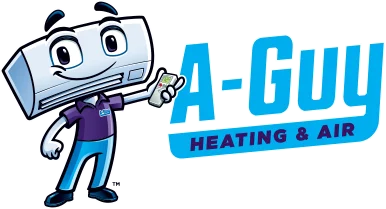Winter can be a challenging season for maintaining a comfortable and efficient home. Heating systems work harder during the cold months, which can lead to various HVAC issues. Identifying and addressing these problems promptly ensures your home stays warm and your HVAC system runs smoothly.
Identifying and Fixing Uneven Heating
Uneven heating is a common issue that can make your home uncomfortable during winter. Identifying the causes helps in addressing the problem efficiently. Common causes include blocked vents, poor insulation, and improperly sized HVAC units.
Start by checking your air vents and registers. Ensure they are not blocked by furniture, curtains, or other objects. Blocked vents restrict airflow, leading to uneven heating. Cleaning the vents from dust and debris can also improve airflow and heating efficiency.
Poor insulation can cause warm air to escape, leading to cold spots in your home. Check your attic, walls, and windows for adequate insulation. Adding weather stripping around doors and windows can also prevent drafts that disrupt even heating.
An improperly sized HVAC unit can struggle to heat your home evenly. If the unit is too small, it may not generate enough heat. If it’s too large, it may cycle on and off frequently, causing temperature imbalances. Consulting our professionals can help you evaluate if your HVAC unit is correctly sized for your home’s needs. They can offer recommendations for adjustments or upgrades to ensure even heating.
Addressing Thermostat Malfunctions
Thermostat malfunctions can make it difficult to maintain a comfortable temperature in your home. Common issues include incorrect settings, poor placement, and aging thermostats.
First, check the thermostat’s settings. Ensure it is set to the correct mode (heating) and the desired temperature. Sometimes, simple issues like dead batteries can cause the thermostat to malfunction. Replacing the batteries might resolve the problem.
Poor thermostat placement can also cause inaccurate temperature readings. Ensure the thermostat is not placed in direct sunlight, near drafts, or close to heat sources like lamps and appliances. These factors can skew its readings, leading to improper heating cycles.
If the thermostat is old, it might be time for a replacement. Modern programmable thermostats offer better accuracy and energy management. They allow you to set heating schedules, ensuring your home stays warm when you need it most. Consult our professionals to upgrade to a more efficient thermostat. They can install and configure it to optimize your heating system’s performance.
Dealing with Frozen Pipes and Heat Pump Issues
Frozen pipes can disrupt your heating and cause significant damage to your HVAC system. Preventing pipes from freezing is key to maintaining optimal function. Keep your home’s temperature consistent and avoid letting it drop too low, especially overnight. Insulating exposed pipes in unheated areas such as basements, garages, and attics can provide additional protection.
If pipes do freeze, shut off the water supply to prevent bursting. Use a hairdryer or heat lamp to thaw the pipes gradually—never use an open flame. If you are unsure or the problem persists, contact our professionals for assistance.
Heat pumps can also face challenges in winter. They may struggle to extract heat efficiently from the cold air. Ensure the outdoor unit is free of snow and debris. Ice build-up can cause the unit to malfunction, so regular maintenance and defrost cycles are crucial.
Using supplemental heating sources such as space heaters can alleviate some of the burden on your heat pump. Always follow safety guidelines when using these appliances to avoid accidents. For persistent issues, consult our technicians. They can diagnose and repair heat pump problems, ensuring your home remains warm.
Improving Indoor Air Quality During Winter
Winter can negatively impact indoor air quality. With homes sealed tight to keep out the cold, pollutants and allergens can accumulate indoors. Taking steps to improve air quality makes your home more comfortable and healthy.
Regularly replacing HVAC filters is one way to maintain good air quality. Dirty filters can obstruct airflow and circulate dust and allergens. High-efficiency filters are particularly effective at capturing small particles.
Using air purifiers helps remove contaminants from the air. Choose a purifier appropriate for the size of your rooms and let it run continuously for the best results. Humidifiers can also be beneficial, as winter air tends to be dry. Maintaining proper humidity levels prevents respiratory discomfort and preserves wood furniture and floors.
Ventilating your home is crucial. Occasionally open windows to let in fresh air, even in winter. Exhaust fans in kitchens and bathrooms help eliminate moisture and odors. Regular cleaning, especially vacuuming with a HEPA filter, further reduces dust and allergens. Consult our professionals if you need advice on the best air quality solutions for your home.
Conclusion
Maintaining your HVAC system during winter ensures a comfortable and healthy home. Addressing common issues like uneven heating, thermostat malfunctions, frozen pipes, and heat pump troubles keeps your system running efficiently. Taking steps to improve indoor air quality also enhances your living environment.
For experienced and reliable HVAC services in Orlando Park, contact A-Guy Heating & Air today. Let our knowledgeable technicians ensure your home stays warm and healthy throughout the winter season!

